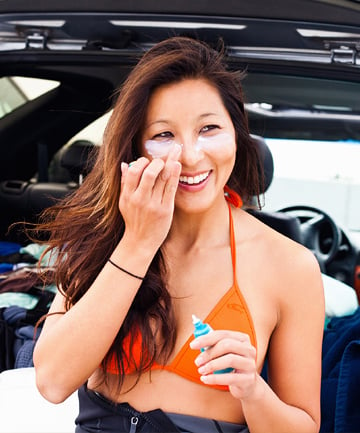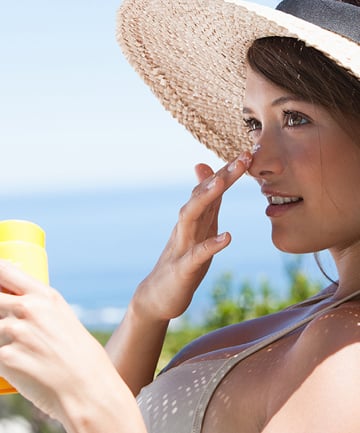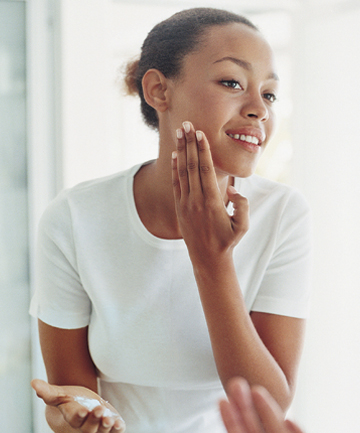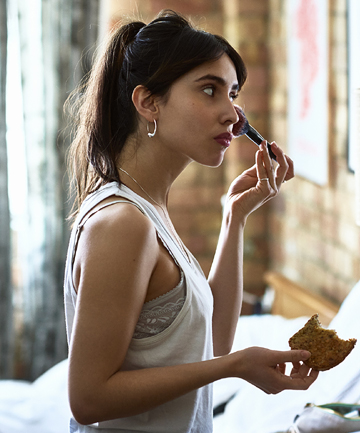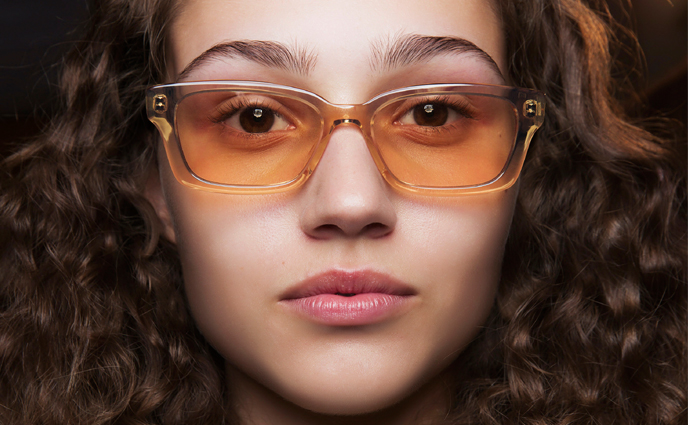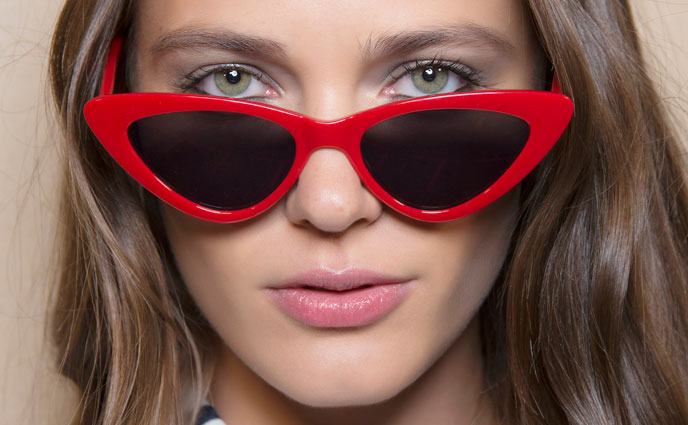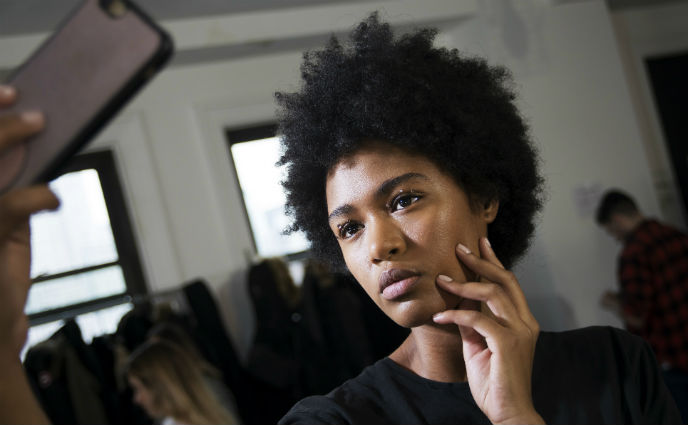The sun's UVA rays are responsible for causing both cancer and premature aging, but applying sunscreen reduces your risk of both.
"Sun-related premature aging signs include lines, wrinkles, sallowness of the skin, and sun spots," says Dr. Robinson. "The UV radiation [also] breaks down our collagen, which is the building blocks of our skin. We want to preserve and protect our collagen as much as possible since its breakdown leads to many signs and symptoms of aging."
Image via Jordan Lutes/Image Source/Getty
Speaking of sun spots...
"Sun spots are those pesky brown spots that develop on sun exposed skin — primarily face, arms, chest, shoulders and back — and that occur after sun exposure from the stimulation of melanocytes, or pigment producing cells in the skin," explains Dr. Shari Marchbein, a NYC-based board certified dermatologist. "Melasma, also known as mask of pregnancy, is a form of hyperpigmentation characterized by brown patches on sun exposed areas, such as the cheeks, forehead, upper lip, and can occur less commonly off of the face on the scalp and arms."
Sun exposure exacerbates both of these issues — both of which are very difficult to treat — which makes preventative sunscreen application vital.
Image via Tom Merton/OJO Images/Getty
The sun's UVB rays are responsible for causing painful burns when we're exposed to the sun without being protected via sunscreen.
"Burned skin is damaged skin," says Dr. Robinson. "A burn is our body's way of trying to deal with too much UV radiation or sun. Burns can lead to blisters [and] discoloration of the skin."
Image via Virojt Changyencham/Moment/Getty
Dr. Marchbein says that the trifecta of daily skin care products for healthy skin are sunscreen with at least a 30 SPF, retinoids at night, and antioxidant serums for the morning. If you're using the latter two, then SPF becomes even more important (and it's already pretty darn important).
"Not only can many retinoids be inactivated by the sun, but they also tend to make the skin more sensitive to UV rays and more easily able to sunburn. I recommend using retinoids at night to repair skin and fork new collagen, and to apply sunscreen liberally during the day," notes Dr. Marchbein. "Also, antioxidant vitamin C serums, which help to even pigmentation and fight free radical damage, are better able to protect the skin when sunscreen is applied overtop to inactivate the sun's damaging UV rays."
Image via Sydney Shaffer/DigitalVision/Getty
Some facial sunscreens are specifically formulated for under-makeup usage to act as a primer or glow-enhancer. Others also do a bit of double-duty and act as a daily moisturizer, as well. Note that such products are different than cosmetics with built-in SPFs and should be used in conjunction with makeup.
"Makeup with SPF is not sufficient to protect your face in the morning, as you need a teaspoon amount of sunscreen to get the listed SPF. Instead, I recommend applying a moisturizer with sunscreen, or full sunscreen first, then your makeup overtop," says Dr. Marchbein. "To touch up throughout the day, a powder SPF can be applied over foundation and makeup without disturbing it."
Image via 10'000 Hours/DigitalVision/Getty


